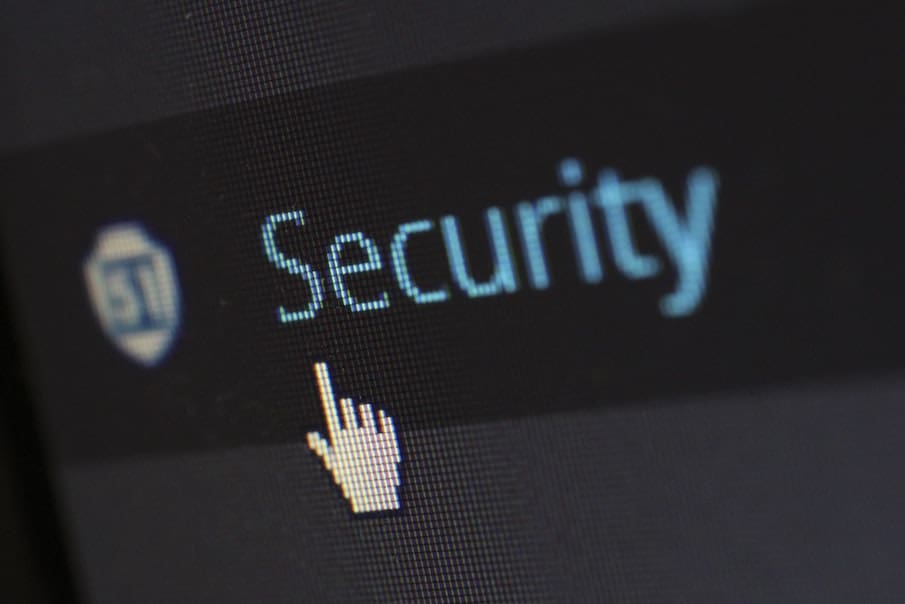When it comes to protecting your personal information, the internet is a major pain point. Think about it – you store all your important information on the web: your emails and texts, medical information, and more.
That’s why it’s so important to have strong passwords – and to store your password information correctly. Having a weak password is like putting a bad lock on your door that doesn’t work. You would never do that in the physical world, so why do it in the digital realm?
Passwords can also come into play in the estate planning process, as your loved ones will need easy and quick access to your information in the event that you pass away or become otherwise unable to access the information yourself.
Today, we’re walking you through the ins and outs of password management, from choosing strong passwords to safely storing your login credentials and everything in between.
Why is Password Management Important?
If you follow our monthly newsletter, you know that we’ve taken an interest in password security recently.
According to one recent study by cybersecurity firm Hive, your password is probably not as secure as you think. In fact, if your password is any combination of 10 characters that are only numbers, the average hacker would likely have access to your account almost instantaneously.
But before you bulldoze ahead with the intent of changing all your passwords to incredibly complex combos, you need to make a plan. Hasty password changes are likely to send you hitting that “forgot password” button more than once – landing you right back at square one.
Passwords and Estate Planning
Another reason to keep your digital details organized? It can be an invaluable tool in your estate planning.
In the event that you pass away or become incapacitated, your loved ones may need access to some of your online accounts. Unfortunately, data privacy laws can make that complicated. From phone records to online credit card accounts, your family might end up spending an inordinate amount of time trying to gain access, with little to no results.
Keeping your login information in a secure location is important, but the next step is to ensure your loved ones will be able to find that information in case of an emergency.
5 Steps to Protect and Manage Your Passwords
Ready to give your passwords a makeover? We’ve got you covered – here are five simple steps you can take to protect your digital information, create strong passwords and safely share your login credentials with loved ones.
1. Make a List
This first step is all about getting organized. Grab a pencil and sheet of paper and list out all your important logins, including (but not limited to):
- Online bank accounts or credit cards
- Emails
- Bills payment sites
- Your phone company
- Streaming platforms (such as Netflix or Spotify)
- Online medical information and insurance
- Investment accounts
- Social media accounts
- Any other online accounts you have
When it comes to making your list, more is better than less. The goal is to list out all of your digital accounts in one sitting – if you do some now and some later, you’re more likely to forget an account along the way.
If applicable, make this list with your spouse – maybe they usually handle paying bills and you’re unsure of which utilities even need to be paid each month. Another trusted mind to bounce ideas off of never hurts.
2. Create Strong Passwords
The most important part to remember when redoing your logins is that each password should be unique. If you’re using the same password for multiple accounts, a hacker need only get into one account to essentially have a free pass at the others. Again, you wouldn’t use the exact same key for your car, house, and safety deposit box – why would your digital space be any different?
When creating your new passwords, there are a few other key tips to keep in mind:
- Longer is better
The more characters in your password, the harder it will be for any potential hackers to figure it out. A good rule of thumb is to shoot for at least 12 characters in each of your passwords.
- Add some variety (in characters)
Those 12 characters shouldn’t spell a word or just be a sequence of numbers. Your best bet is to incorporate a combination of numbers, letters and symbols in your passwords. The more random, the better.
- Keep it impersonal
Don’t use your personal information as inspiration for your logins. When it comes to creating strong passwords, your birth date, hometown and middle name shouldn’t be involved.
If you think you will have trouble remembering these complex codes, you’re not alone – and there are tools you can use to help. Explore some password manager apps or websites, like LastPass or 1Password. These companies provide a safe place to store all your login information, so you need only remember one password.
3. Find a Safe Place for Your Master Password
Most password managers have a master password or key that you are responsible for keeping track of – they don’t even save it for you. Print out your master key and find a place to store it that is safe and easily accessible.
While many people think a safety deposit box is a good spot, we actually recommend against this practice. Safety deposit boxes are a great place to store important items, but not so much for things you’d need in an emergency, because you can only access the box during banking hours.
A better place would be a safe in your own home, ideally fireproof. You can always keep a backup copy of your master key in your safety deposit box, just in case.
4. Give Access to a Person You Trust
If you were to have an accident, go missing, or become otherwise incapacitated, your loved ones might need to find information quickly – so they need to know where to look.
Choose a trusted friend or family member (aside from your spouse) to share your special spot with. Think of someone organized and responsible – who immediately comes to mind?
5. Stay Up to Date
All things change over time, including passwords. Sometimes companies even require you to update your passwords every so often. In that case, make sure to keep your records updated as well.
With these five steps in place, you have top-notch digital security in place, while also ensuring your loved ones can access your important information when they need it most.
Seek Security with Clarity
Want to explore more options for securing your future? Click here to connect with Clarity Financial Wealth today – we’re happy to help!



